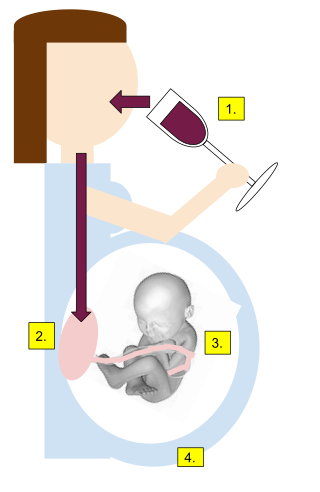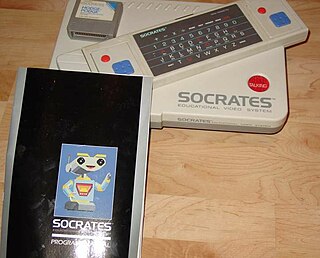
Alcoholism is the continued drinking of alcohol despite negative results. Problematic use of alcohol has been mentioned in the earliest historical records, such as in ancient Egypt and in the Bible, and remains widespread; the World Health Organization (WHO) estimated there were 283 million people with alcohol use disorders worldwide as of 2016. The term alcoholism was first coined in 1852, but alcoholism and alcoholic are stigmatizing and discourage seeking treatment, so clinical diagnostic terms such as alcohol use disorder or alcohol dependence are used instead.
Computer addiction is a form of behavioral addiction that can be described as the excessive or compulsive use of the computer, which persists despite serious negative consequences for personal, social, or occupational function. Another clear conceptualization is made by Block, who stated that "Conceptually, the diagnosis is a compulsive-impulsive spectrum disorder that involves online and/or offline computer usage and consists of at least three subtypes: excessive gaming, sexual preoccupations, and e-mail/text messaging". Computer addiction is not currently included in the Diagnostic and Statistical Manual of Mental Disorders (DSM-5) as an official disorder. The concept of computer addiction is broadly divided into two types, namely offline computer addiction, and online computer addiction. Offline computer addiction is normally used when speaking about excessive gaming behavior, which can be practiced both offline and online. Online computer addiction, also known as Internet addiction, gets more attention in general from scientific research than offline computer addiction, mainly because most cases of computer addiction are related to the excessive use of the Internet.

Alcohol abuse encompasses a spectrum of unhealthy drinking behaviors, ranging from binge drinking and alcohol dependence to addiction resulting in physical withdrawal symptoms when abruptly stopping the intake of alcohol for more than 24 hours.

Acrophobia is an extreme or irrational fear or phobia of heights, especially when one is not particularly high up. It belongs to a category of specific phobias, called space and motion discomfort, that share similar causes and options for treatment.

Alcohol dependence is a previous psychiatric diagnosis in which an individual is physically or psychologically dependent upon alcohol.

Problem gambling or ludomania is repetitive gambling behavior despite harm and negative consequences. Problem gambling may be diagnosed as a mental disorder according to DSM-5 if certain diagnostic criteria are met. Pathological gambling is a common disorder associated with social and family costs.

Video game addiction (VGA), also known as gaming disorder or internet gaming disorder, is generally defined as a psychological addiction that is problematic, compulsive use of video games that results in significant impairment to an individual's ability to function in various life domains over a prolonged period of time. This and associated concepts have been the subject of considerable research, debate, and discussion among experts in several disciplines and has generated controversy within the medical, scientific, and gaming communities. Such disorders can be diagnosed when an individual engages in gaming activities at the cost of fulfilling daily responsibilities or pursuing other interests without regard for the negative consequences. As defined by the ICD-11, the main criterion for this disorder is a lack of self control over gaming.
Cyberpsychology is a scientific inter-disciplinary domain that focuses on the psychological phenomena which emerge as a result of the human interaction with digital technology, particularly the Internet.

An educational video game is a video game that provides learning or training value to the player. Edutainment describes an intentional merger of video games and educational software into a single product. In the narrower sense used here, the term describes educational software which is primarily about entertainment, but tends to educate as well and sells itself partly under the educational umbrella. Normally software of this kind is not structured towards school curricula and does not involve educational advisors.

Internet addiction disorder (IAD) can otherwise be referred to as problematic internet use or pathological internet use. It is generally defined as problematic, compulsive use of the internet, that results in significant impairment in an individual's function in various aspects of life over a prolonged period of time. Young people are at particular risk of developing internet addiction disorder, with case studies highlighting students whose academic performance plummets as they spend more and more time online. Some also experience health consequences from loss of sleep, as they stay up later and later to chat online, check for social network status updates or to further progress in a game.

Nomophobia is a word for the fear of, or anxiety caused by, not having a working mobile phone. It has been considered a symptom or syndrome of problematic digital media use in mental health, the definitions of which are not standardized for technical and genetical reasons.
Game addiction problems can induce repetitive strain injuries, skin disorders or other health issues. Other problems include video game-provoked seizures in patients with epilepsy. In rare and extreme cases, deaths have resulted from excessive video game playing.

Addiction is a neuropsychological disorder characterized by a persistent and intense urge to use a drug or engage in a behaviour that produces natural reward, despite substantial harm and other negative consequences. Repetitive drug use often alters brain function in ways that perpetuate craving, and weakens self-control. This phenomenon – drugs reshaping brain function – has led to an understanding of addiction as a brain disorder with a complex variety of psychosocial as well as neurobiological factors that are implicated in addiction's development. Classic signs of addiction include compulsive engagement in rewarding stimuli, preoccupation with substances or behavior, and continued use despite negative consequences. Habits and patterns associated with addiction are typically characterized by immediate gratification, coupled with delayed deleterious effects.
Various researchers have undertaken efforts to examine the psychological effects of Internet use. Some research employs studying brain functions in Internet users. Some studies assert that these changes are harmful, while others argue that asserted changes are beneficial.
The biopsychological theory of personality is a model of the general biological processes relevant for human psychology, behavior, and personality. The model, proposed by research psychologist Jeffrey Alan Gray in 1970, is well-supported by subsequent research and has general acceptance among professionals.
Kimberly Sue Young O'Mara was a psychologist and expert on Internet addiction disorder and online behavior. She founded the Center for Internet Addiction in 1995 while she was a psychology professor at the University of Pittsburgh at Bradford. Until her death in 2019, Young was a professor of management at St. Bonaventure University. During her career, she published numerous journal articles and book chapters and served as an expert witness regarding her pioneer research including testimony for the Child Protection Online Act Congressional Committee. Young was a member of the American Psychological Association, the Pennsylvania Psychological Association, and a founding member of the International Society of Mental Health Online. Aged 53, Young died of cancer on February 28, 2019.

Problematic smartphone use is proposed by some researchers to be a form of psychological or behavioral dependence on cell phones, closely related to other forms of digital media overuse such as social media addiction or internet addiction disorder. Other researchers have stated that terminology relating to behavioral addictions in regards to smartphone use can cause additional problems both in research and stigmatization of users, suggesting the term to evolve to problematic smartphone use. Problematic use can include preoccupation with mobile communication, excessive money or time spent on mobile phones, and use of mobile phones in socially or physically inappropriate situations such as driving an automobile. Increased use can also lead to adverse effects on relationships, mental or physical health, and ensues anxiety if separated from a mobile phone or sufficient signal. Preschool children and young adults are at highest risk for problematic smartphone use.
Mark D. Griffiths is an English chartered psychologist focusing in the field of behavioural addictions, namely gambling disorder, gaming addiction, Internet addiction, sex addiction, and work addiction. He is a Professor of Behavioural Addiction at Nottingham Trent University and director of the International Gaming Research Unit. He is the author of five books including Gambling Addiction and its Treatment Within the NHS, Gambling and Gaming Addictions in Adolescence, and Adolescent Gambling. He has also authored over 600 refereed papers, 140+ book chapters and more than 1,500 articles, and has won 15 awards for his research, including a Lifetime Achievement Award For Contributions to the Field of Youth Gambling in 2006 and International Excellence Award For Gambling Research in 2003 and a Lifetime Research Award For Gambling Research in 2013. Griffiths has recently encountered criticisms on his publication record, with scholars raising a number of concerns including the lack of data sharing/transparency and self-plagiarism found across a number of his papers.
Thorsten Quandt is the professor of online communication at the University of Münster, Germany. He has a particular interest in online communication, (online) journalism and digital media. He (co)authored more than 200 scientific articles and several books, including Participatory Journalism, which was influential in establishing the citizen journalism model. He has edited numerous books, primarily in the field of online communication and digital media, including The Video Game Debate. His work was awarded with several scientific prizes, including international Top Paper Awards, the dissertation award of the German Communication Association, and an ERC grant.
The relationships between digital media use and mental health have been investigated by various researchers—predominantly psychologists, sociologists, anthropologists, and medical experts—especially since the mid-1990s, after the growth of the World Wide Web. A significant body of research has explored "overuse" phenomena, commonly known as "digital addictions", or "digital dependencies". These phenomena manifest differently in many societies and cultures. Some experts have investigated the benefits of moderate digital media use in various domains, including in mental health, and the treatment of mental health problems with novel technological solutions.










